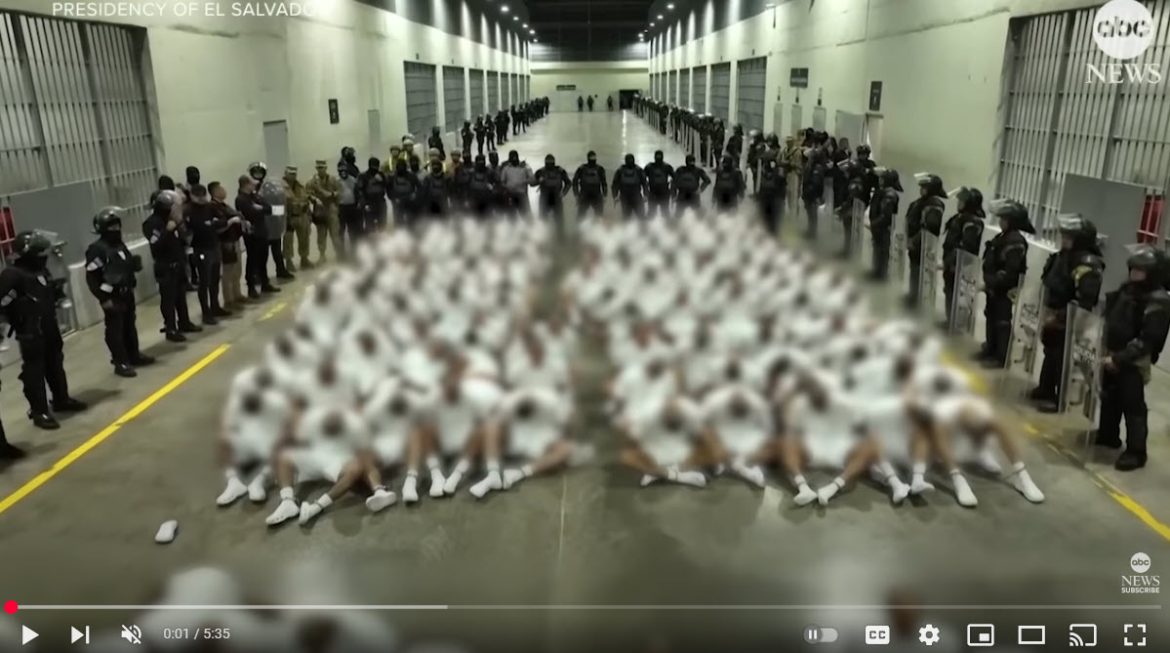The Trump administration’s recent deportation of alleged Venezuelan gang members to El Salvador has ignited a legal battle, highlighting tensions between executive authority and judicial oversight. On March 15, 2025, President Donald Trump invoked the Alien Enemies Act of 1798 to authorize the deportation of individuals identified as members of the Tren de Aragua gang, citing national security concerns. This unprecedented use of the centuries-old law has raised questions about its applicability in contemporary contexts.
In response, U.S. District Judge James Boasberg issued a temporary restraining order to halt the deportations, mandating that any ongoing flights be redirected back to the United States. Despite this order, at least one deportation flight proceeded to El Salvador, where the deportees were handed over to local authorities. This action has led to allegations that the administration defied a federal court directive.
Judge Gives Trump Admin Another Day. A federal judge is giving the Trump administration’s lawyers more time to provide information on deportation flights that were conducted last weekend. U.S. District Judge James Boasberg wants answers on the timing of flights that he ordered to turn around on Saturday. The White House has pushed back and said the judge continues to “beat a dead horse” over the situation.
The Department of Justice has resisted providing detailed information about the deportation flights, arguing that such disclosures could impinge upon national security and fall within the purview of executive authority. Judge Boasberg has demanded specifics regarding the flights, including departure and arrival times, as well as the number of individuals deported. The administration faces a deadline to furnish this information or formally invoke the state-secrets privilege to withhold it.
President Trump has publicly criticized Judge Boasberg, labeling him a “Radical Left Lunatic” and calling for his impeachment. This unprecedented attack on a sitting federal judge prompted a rare public rebuke from Chief Justice John Roberts, who emphasized that impeachment is not an appropriate response to disagreements with judicial decisions and that the proper avenue for such disputes is the appellate process.
The administration’s actions have drawn criticism from legal experts and human rights organizations, who argue that invoking the Alien Enemies Act during peacetime for immigration enforcement is legally questionable. The American Civil Liberties Union (ACLU) has filed a lawsuit challenging the deportations, asserting that only Congress has the authority to regulate immigration in such a manner.
The situation has also raised concerns about the treatment of deportees upon arrival in El Salvador. Videos released by Salvadoran authorities depict harsh conditions for the deportees, leading to human rights advocates questioning the humanitarian implications of the deportations.
As the legal proceedings continue, the conflict underscores the delicate balance between national security measures and adherence to the rule of law, with potential implications for the separation of powers and the protection of individual rights.
Sources:
- AP News – Trump Administration Resists Deportation Inquiry
- Barron’s – Chief Justice Roberts Rebukes Trump
- Politico – Deportation Support and El Salvador
- NPR – Alien Enemies Act and Trump’s Deportations
- AP News – ACLU Challenges Deportations
- NPR – Justice Department Faces Boasberg’s Deadline



